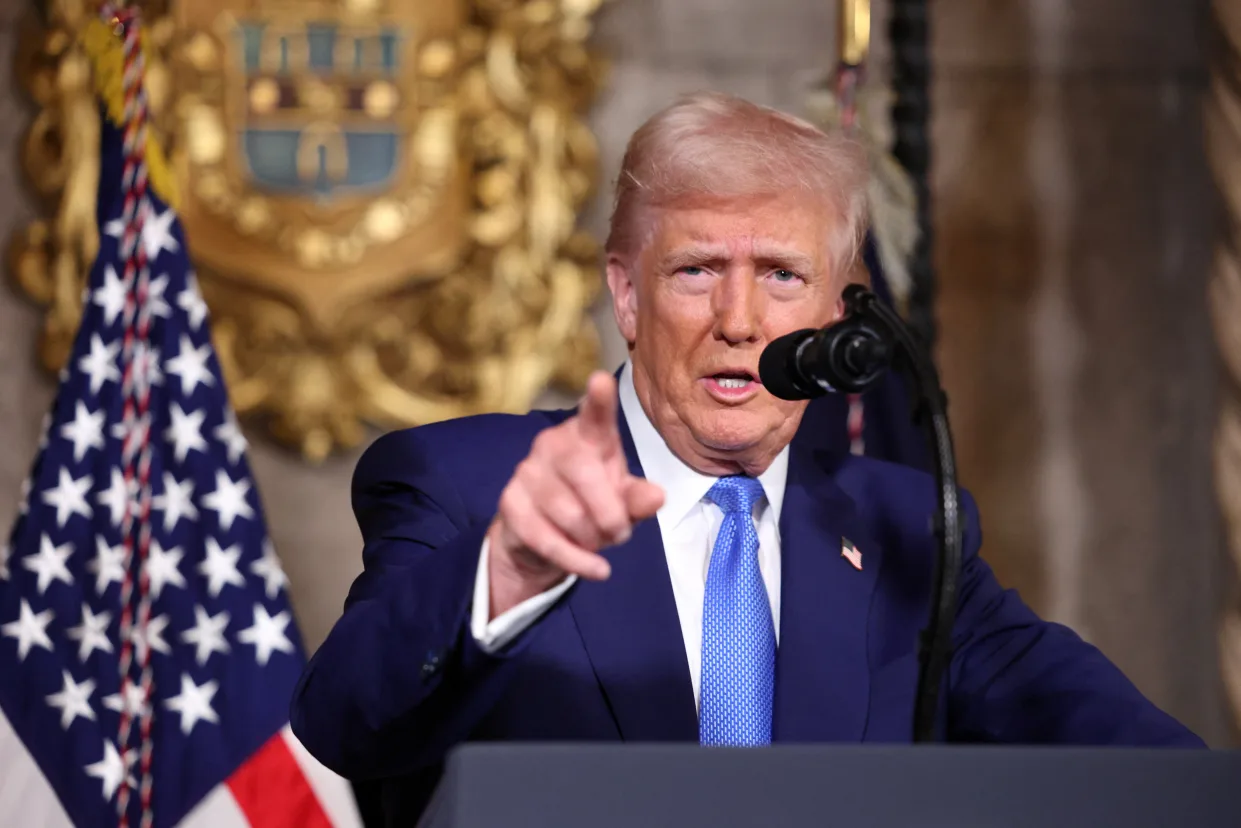Featured
article
- Get link
- X
- Other Apps
Trump Proposes 25% Tariffs on Autos, Pharmaceuticals, and Semiconductor Chips

In a move that could significantly impact international trade, former President Donald Trump has announced plans to impose 25% tariffs on automobile, pharmaceutical, and semiconductor chip imports. The announcement was made during a press briefing at his Mar-a-Lago estate in Florida, where he outlined his intentions to reshape global trade policies.
Trump stated that the tariffs on auto imports would be "in the neighborhood of 25 percent" and are set to be implemented as early as April 2. This date coincides with the day his cabinet members are expected to deliver reports outlining options for various import duties. The proposed tariffs aim to address what Trump perceives as unfair treatment of U.S. automotive exports in foreign markets.
In addition to automobiles, Trump plans to impose similar tariffs on imported semiconductors and pharmaceutical goods. He mentioned that the government could collect 25% or higher in taxes for these imports, with the rates potentially increasing over the course of a year. Trump emphasized that he wants to give companies in these industries some time to build factories in the U.S. to avoid the new tariffs.
The proposed tariffs have raised concerns among economists and industry experts, who warn that they could lead to higher prices for consumers and increased costs for businesses. The automotive industry, in particular, could see significant price hikes, as nearly half of vehicle sales in the U.S. last year were imported from foreign countries.
Trump's announcement is part of a broader effort to promote "balanced" trade with foreign markets and encourage the reshoring of strategic industries. While the proposed tariffs could have far-reaching effects, Trump believes they will ultimately benefit the U.S. economy in the long run.
: [Yahoo News](https://ca.news.yahoo.com/trump-plans-to-impose-25-percent-tariffs-on-automobile-and-semiconductor-imports-130044480.html)
: [CBC News](https://www.cbc.ca/news/canada/windsor/trump-tariffs-pharma-chips-auto-25-percent-1.7462509)
: [MSN](https://www.msn.com/en-us/money/markets/trump-plans-to-impose-25-tariffs-on-autos-chips-and-pharmaceuticals/ar-AA1zkWCA)
Popular Posts
Trump's Six Words: "I'm Going to Stop the Wars"
- Get link
- X
- Other Apps
Smart Savings for a Sharp School Start: Canadian Parents’ 2025 Guide
- Get link
- X
- Other Apps



Comments
Post a Comment